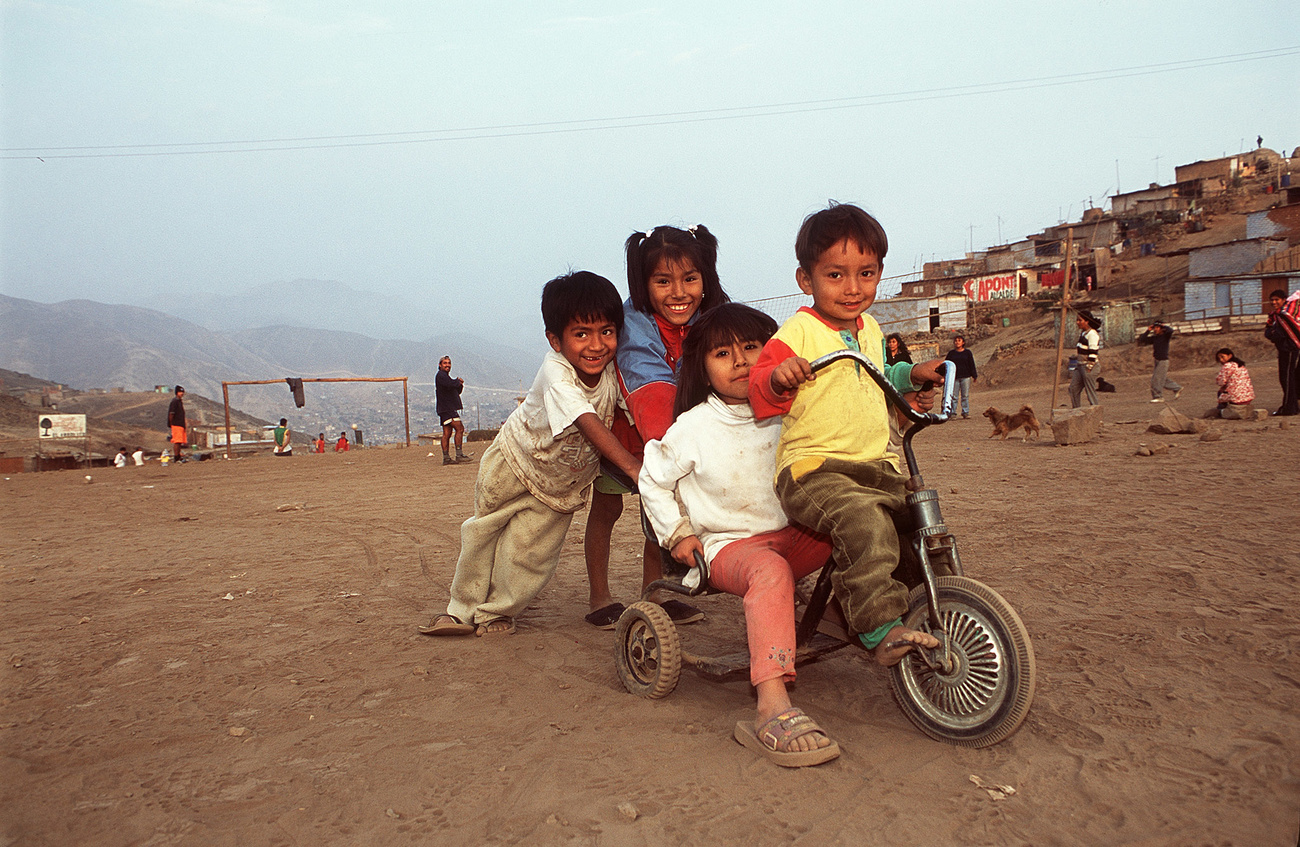The Swiss illegally adopted thousands of children from abroad

Children from 10 countries were fraudulently adopted between the 1970s and 1990s. The Swiss authorities were aware of this.
Child trafficking, falsification of documents and false indications of origin. These practices were a reality for thousands of adoptions that took place between the 1970s and 1990s, reveals a report commissioned by the Swiss government.
Following a study on adoptions from Sri Lanka published in 2020, the government commissioned a report on the adoption of children from Bangladesh, Brazil, Chile, Guatemala, India, Colombia, Korea, Lebanon and Romania. Of the 8,000 children adopted during this period, “several thousand” could be illegally adopted, although it is not yet possible to determine exactly how many.
Analysis of the Federal Archives by the Zurich University of Applied Sciences shows that the federal authorities were aware of illegal practices and reacted “on a case-by-case basis”. When faced with falsified documents, Swiss representations abroad assumed that they “could not judge events in the host country”.
In Brazil, the prospective adoptive parents were duly registered on the children’s birth certificates. The federal authorities “have, on the whole, given more weight to the needs of couples wishing to adopt than to the interests of the adopted children”, notes the report. Today, the government “regrets that the authorities have not sufficiently assumed their responsibilities”.
The Bureau d’aide à la recherche des origines (Baro)External link, a free service that helps adoptees trace their origins, notes that these situations can cause great suffering for adopted people and their families. Here’s what its co-founder Sitara Chamot, an adoption professional and an adoptee herself, has to say on the illegal adoptions.
Le Courrier: What stands out for you in this report?
Sitara Chamot: Unfortunately, these are practices that we were already familiar with. It is very rare for an adopted child to be an orphan. Most have been separated from their families, for a wide variety of reasons. This happens in the context of war, poverty or the status of women, for example.
Some parents who are ill or unemployed entrusted their child to their relative’s care on a temporary basis. In other cases, intermediaries lied, claiming that they were going to send their children to school in the city. Then the trafficking started. But we mustn’t confuse the two and think that this applies to all adoptions. Sometimes adoptions were legal.
The authorities were aware of the illegal nature of the adoptions and let it happen. How can you explain that?
S.C: At the time, defending the interests of the child was given little consideration. In the collective imagination, which stems from a colonial heritage, people thought that children would have a better life in Switzerland. There was also the idea of a “right to a family” for parents who wanted children. We were pleasing the adoptive parents and saving children. The authorities knew that there were administrative problems, but they thought that once the child arrived in Switzerland, everything would be resolved.
There were strict criteria for adoption: the consent of the family of origin or having an orphan status. But these were not enough. There was also a fragmentation of responsibilities between the authorities. Each department had a small task without seeing the bigger picture. There were denunciations, particularly in the press, but the authorities did not always react.
What impact could this study have on adult adoptees?
S.C: It can be extremely painful, and I’m not sure that the authorities appreciate this. Being confronted with these revelations means being suspected of being a part of child trafficking and feeling like a commodity.
The report can also create a demand for research into one’s origins on the part of people who were not interested in knowing in the first place. This requires support. It is extremely stressful to begin accessing the paperwork, and falsified files complicate the search.
The Swiss government has expressed its regrets. Is this enough?
S.C: Yes, if it puts in place support for adult adoptees. After the publication of the report on Sri Lanka in 2020, Berne subsidised an association of adoptees from that country. What will it do for the 8,000 people potentially affected by the new report, who will be looking for answers?
In its press release, the government stated that it is up to the cantons to support the people concerned.
S.C: We need swift action! Because there is a need is now. The vast majority of adoptees start looking for their origins at around the age of 30-35. The canton of Vaud delegates support to our association, but in some cantons there are still no specialised services. The federal government says it is considering a solution, but it may take some time. The people affected by the report need to be able to get help quickly with their questions.
Is adoption still risky today?
S.C: Yes, but if adoptive parents work with approved intermediaries regulated by the government, the risk is virtually non-existent. A group of experts has been set up by the Federal Council to look into reforming the law on adoption. This could involve stepping up supervision and limiting cooperation to certain safe countries, or abolishing international adoption altogether. We expect a response next year.

In compliance with the JTI standards
More: SWI swissinfo.ch certified by the Journalism Trust Initiative








You can find an overview of ongoing debates with our journalists here . Please join us!
If you want to start a conversation about a topic raised in this article or want to report factual errors, email us at english@swissinfo.ch.